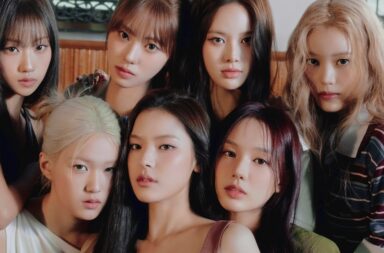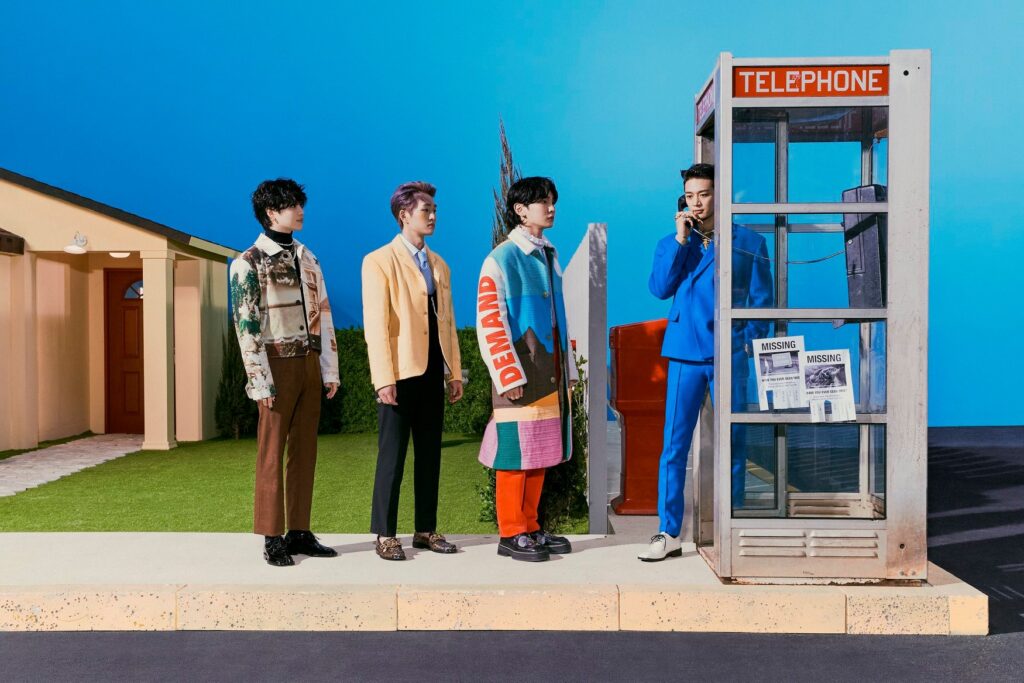
“Shinee’s back” has been Shinee’s catchphrase for years, but never has exclaiming it felt more like welcoming these once boys, now men home. With members Onew, Key and Minho having completed their respective military services, the group recently returned with Don’t Call Me, their seventh full-length album and first group release since 2018’s The Story of Light.
As the longest gap between albums yet, the anticipation building up towards this release was palpable; after all, Shinee’s legacy of vibrantly experimental music, matched with incredible performance, is one which no group yet has come close to surpassing. With nine tracks, Don’t Call Me is a short affair lasting just half an hour, but in true Shinee fashion they visit as many genres in that time as there are colours in the rainbow.
The article you’re about to read, as well as countless others on the site, are the result of much time and effort from our team of volunteer staff. Do consider donating via Ko-fi (ko-fi.com/seoulbeats) or joining our Patreon (patreon.com/seoulbeats) to show your support!
Flitting from edgy hip-hop on “Don’t Call Me” to smooth R&B on “Marry You”, they then flutter towards Ariana–Grande-inspired pop-reggae on “Body Rhythm”, before finally settling with the soft ballad, “Kind”. All are fun, enjoyable tracks – “Body Rhythm”, in particular, earns its place by offering the catchiest hooks on the record, though thematically it contributes much less.
In between, they revisit their signature funky sound on upbeat pop tracks like “Heart Attack”, “I Really Want You”, “Kiss Kiss”, and “Attention”. These songs are similarly enjoyable, and celebrate the best of past Shinee with comfortingly familiar motifs, such as bright, funk instrumentation, doo-wop vocals, and simple, danceable rhythms.
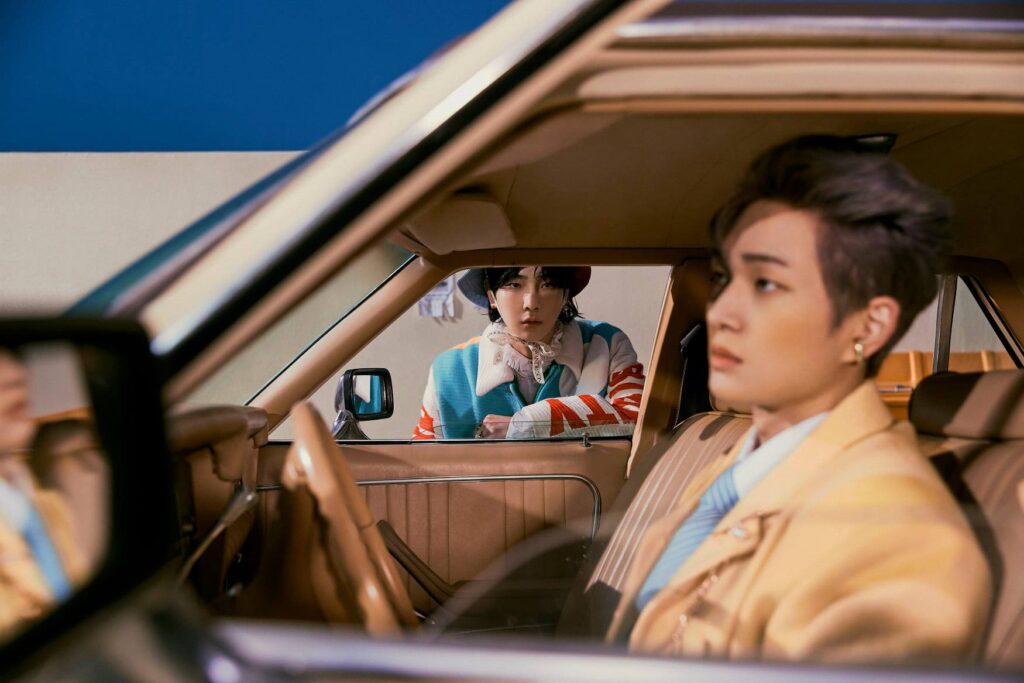
However, where Don’t Call Me advances their real agenda – that of exploring new territory as a more mature, authentic Shinee – is with the dark, cold anger of title track “Don’t Call Me” and the adventurous futurism of fourth track “Code” (stylised as “CØDE”). Together, these songs mark a turning point in Shinee’s musical development, cementing Don’t Call Me as the beginning of a new chapter and The Story of Light as the ending of the last.
“Don’t Call Me” opens the project, with powerful trap percussion, sinister bass undercurrents, and aggressive rap immediately distancing it from brighter past title tracks such as “Everybody” or “View”. Minho hisses that he’s “sick of all your trash” and that “you’re the worst”; the lyrics border on immature, but certain moments make an impact using gritty imagery:
Deep in the night the bell
Keeps ringing, it’s your calling
Awfully stubborn
That’s you, still call
You can’t give up easily
You can’t get rid of that temper
You just search my name all day long
You find my traces and lick them
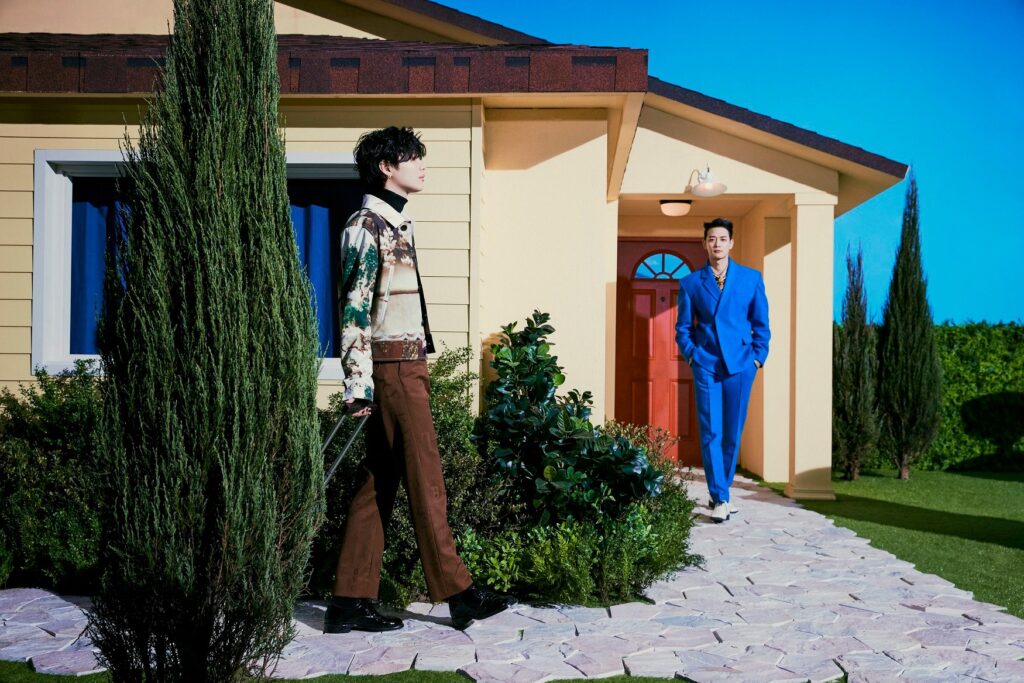
Putting power and weight behind these lyrics is Shinee’s performance, dripping with disdain, along with impeccable songwriting. Minho injects his normally earnest, straightforward rap with a venom that no one expected him to have, and his scenes in the MV are some of the most impactful as a result. Similarly, Key’s signature sardonicism makes his vocals – already the sharpest in tone – all the more scathing.
Meanwhile, Shinee’s penchant for dancing between minor and major chords — normally used to create a sense of discovery and wonder such as on “Sherlock” — is here incorporated as a sinister shift from menacing to vicious, as their fury erupts into a piercing melody on the chorus. In both cases, it implies resolution – for “Sherlock”, it’s the triumph of solving the case, while here, it’s the decision to end this love once and for all.
The same technique appears on “Code” in a more familiar setting. Throughout the chorus, shifts between major and minor variations of the same chord are used as a device for implying discovery and the elation of successfully solving a problem. In keeping with their characterisation as detectives on “Sherlock”, “Code” compares love to cracking a code, and in an appropriately cryptic way:
Let’s crack the CØDE
Find the solution within the unknown
The night I lost my path
And wandered here and there
You came and spread to rule
To my system
You’re giving me control
When I was asleep
The CØDE was moving
And took me out
These two highlights form the most interesting progression of Shinee’s music since The Story of Light. “Code” is the more recognisable style of the two; it revitalises their characterisation as adventurers, explorers, and investigators, particularly in a theatrical sense, which was suggested most explicitly on 2012’s “Sherlock”, but has been a core part of their identity from 2009’s “Juliette” onwards. Originally a Corbin Bleu song called “Deal With It”, Shinee reinvigorated it with lyrics inspired by Romeo and Juliet and MJ-inspired vocals (both primarily contributed by the late Jonghyun).

In doing so, they established a distinctive song structure that would go on to inform many of their most innovative and unique songs, including “Sherlock”, “Why So Serious?”, and B-sides like “One Minute Back” and “Destination”. This consisted of gritty verses that recall danger-filled action scenes (using tense basslines and warlike tribal percussion) which then escalate into exultant choruses evoking triumph (through soaring vocal harmonies and the aforementioned minor-major transition).
This, along with fiction-themed lyrics and strong retro funk influences, turned these songs into the musical equivalent of Indiana Jones movies. In them, Shinee played swashbuckling adventurers who travel the world exploring ancient ruins, dodging arrows and disarming booby traps, before eventually discovering rooms of gleaming treasure. Curiosity was their motivation, danger their obstacle, and the thrill of adventure their reward.
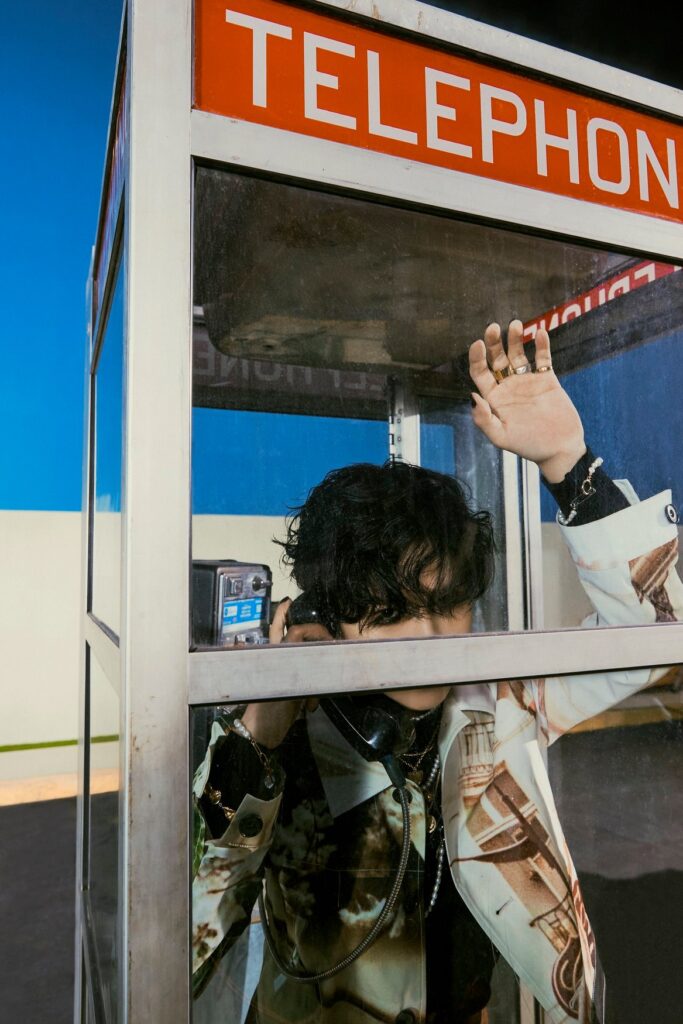
“Code” updates this narrative by transporting them to a more modern setting, established through throbbing electronic bass, pulsing electronic drums and sprawling synth pads that create a giddy sense of space. It’s a high-tech, futuristic metropolis, where everything is clean and perfect in the way that only digitalised music can suggest, but which is also humming with real, human life. Here, Shinee are suave spies on an epic mission to crack a cryptic code, à la Mission: Impossible. The synth trills on the chorus capture a bird-like inquisitiveness, firmly differentiating the song from SuperM fare; they also recall the sounds that we often associate with successfully completing digital tasks (similarly referenced on “Everybody”).
Shinee’s curiosity and love for adventure became their life force and raison d’être, reflected not only in the fiction of their lyrics, but also their musical exploits, which favoured wildly experimental songwriting (“Sherlock” is a mash-up of two songs) and forays into uncharted territory (“View” and “Everybody” were the first mainstream K-pop songs to explore deep house and complextro respectively). Even their avant-garde fashion (spearheaded by Key) reflected a deep desire to try new things and push the limits of what had gone before. Over time, this resulted in Shinee being widely exalted as pioneers within the genre, blazing the trail forward from its frontline – a precarious position that they not only didn’t shy away from, but actively relished.
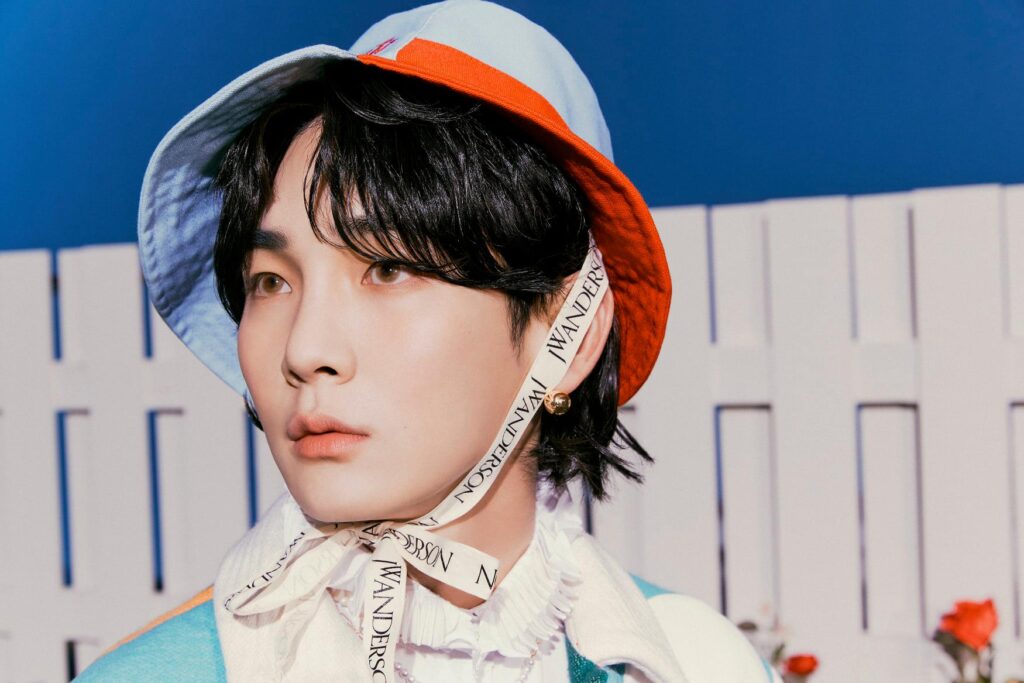
Don’t Call Me brings us back to this more energised, purpose-driven Shinee, after the extended period of solemn introspection following Jonghyun’s passing that consisted of The Story of Light and the group’s subsequent time away from the stage. They’re returning to the industry now, their eyes blaze with a renewed resolve, and on the album that is expressed most strongly through “Don’t Call Me” and “Code”. While the retro funk and R&B influences that dominated many of even their more adventurous songs imply a lingering nostalgia for past eras, “Code” expresses a willingness to embrace the future that has only really been suggested on “Everybody”, “View” and “Lucifer”.
Meanwhile, “Don’t Call Me” is a wake-up call that pulls Shinee out of the fantasy worlds that they so often like to escape to. Even before they had discovered their love for adventure, Shinee were enthusiastic purveyors of fiction and fantasy, often transporting themselves and listeners to magical, imaginary worlds. Like Peter Pan, these fantasies had an innocent, childlike quality, subtly betraying a desire to never grow up, or to leave the safety of Neverland for the real world.

As an example, their first album was named The Shinee World, and their last The Story of Light. In “Juliette”, “Lucifer” and “Sherlock”, they borrowed characters from Romeo and Juliet, Christian mythology and Sherlock Holmes respectively. In “Dream Girl”, they were in love with an imaginary woman, while in “Why So Serious?”, they were zombies. Their 2013 album, The Misconceptions of Us, explored the gap between Shinee’s reality and dreams through a theme of misconceptions, opening with a track called “Spoiler”. The MV for “Married to the Music” was a Halloween-inspired horror film, while in “Everybody”, they were toy soldiers that came alive.
Even for this album, Shinee prefaced the release with a mood sampler called “Fake Reality”, influenced by films such as The Truman Show. In it, they wander around an unsettlingly surreal American-style suburb while strange things happen around them, but they never bat an eyelid. On a billboard, we see the phrase, “Any similarity to actual person or event is unintentional”; meanwhile, a narration posits the idea that beliefs can become fantasies, and fantasies, beliefs.
To all this, “Don’t Call Me” represents a harsh reality check – Shinee are forced to accept that a love they once considered perfect was not so perfect in real life. It’s a rude awakening from their imagined reality that calls on them to accept the truth – the song literally opens with the phrase, “I promise to tell the truth and nothing but the truth”. There’s also a self-awareness of their weakness for fantasy that they normally don’t show; Taemin laments: “Why must tragedy be a part of love? I’m looking at the end of a sad epic”.
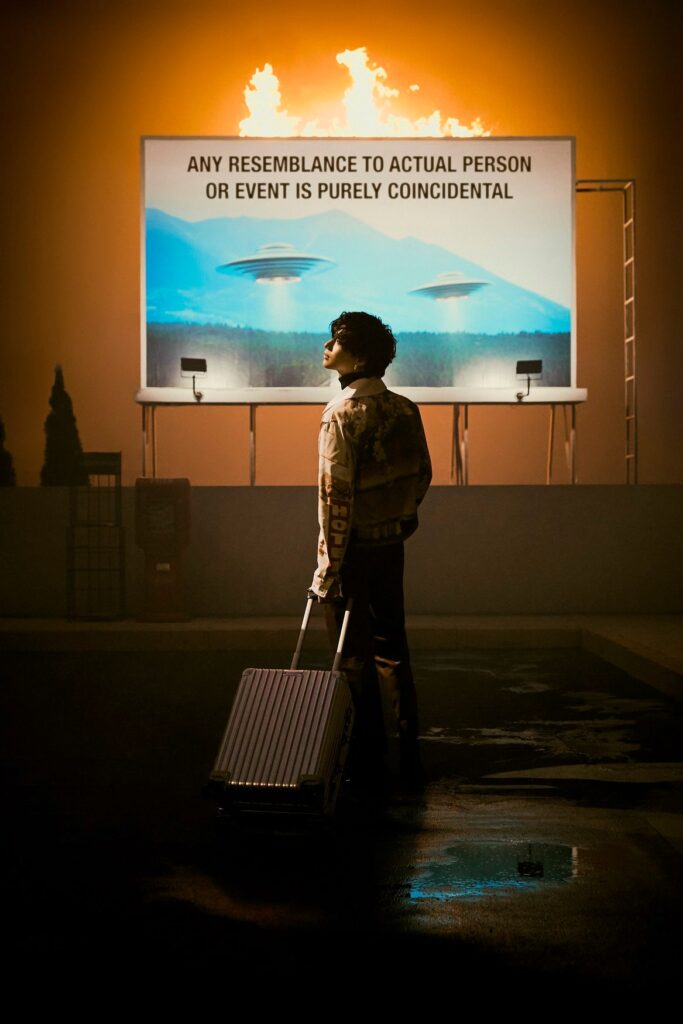
“Don’t Call Me” therefore represents an attempt to reconcile the cold, hard truths of the real world with the magic of their beloved fantasies. It’s a painful step towards growing up, for a group whose characterisation as Peter Pan kept them youthful and innocent for years beyond their contemporaries. It’s a step they are determined to make, however; when Taemin cries out his last chorus over a dark, dramatic classical piano, the moment is equivalent to him looking directly into your eyes, as he strikes a match and holds it up to the status quo. The instrumental resurges around, like flames leaping to surround him, but his gaze never wavers.
This process of acceptance began with the mourning on The Story of Light. On “I Want You”, they reluctantly came to terms with reality, singing, “When I wake up, my setting smile faces reality again, once again if only I could be locked into this dream”. On “Our Page”, they resolved to find a way to continue dreaming regardless: “We’re still the boys who are dreaming”, “I want to fill the pages of this story that isn’t over yet”.
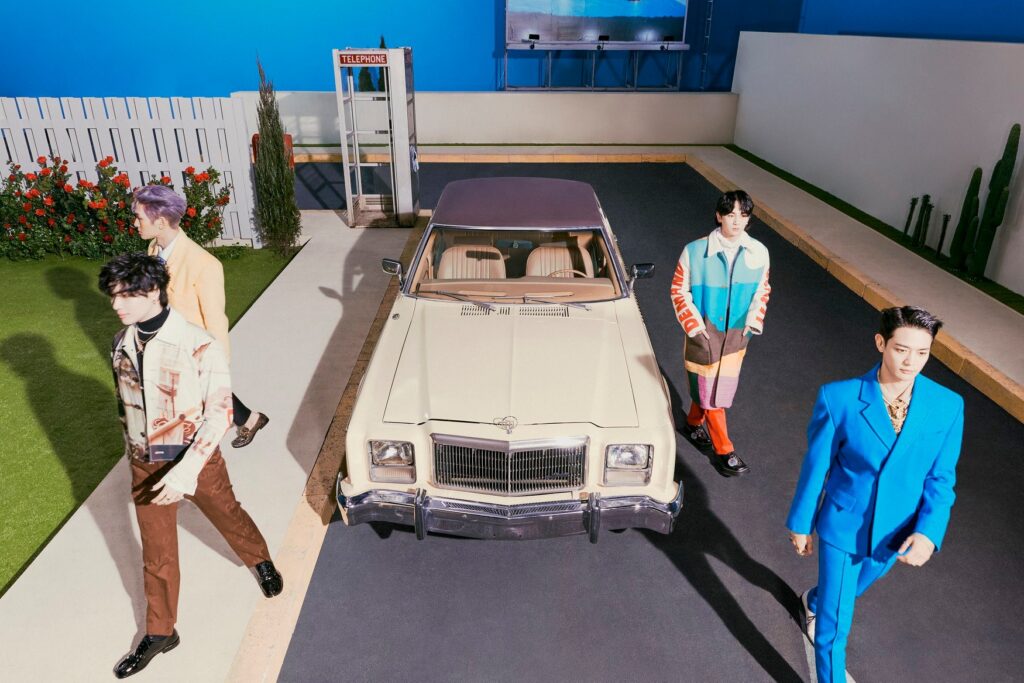
For Shinee, the answer is to bring their dreams to life in this reality, instead of always escaping to worlds that don’t exist; in other words, to grow up. In terms of music, this means rooting their stories more firmly in the cornerstones of reality, so that they can transmit the magic of their imagination to the lives of listeners in a more concrete way, which is also how all good fiction works to change the people that read it. This is the force that can elevate Shinee’s work further now, but whether that happens, we will find out – on the next page.
(YouTube [1]. Dazed, Naver, Forbes. Lyrics via Genius. Images via SM Entertainment.)


